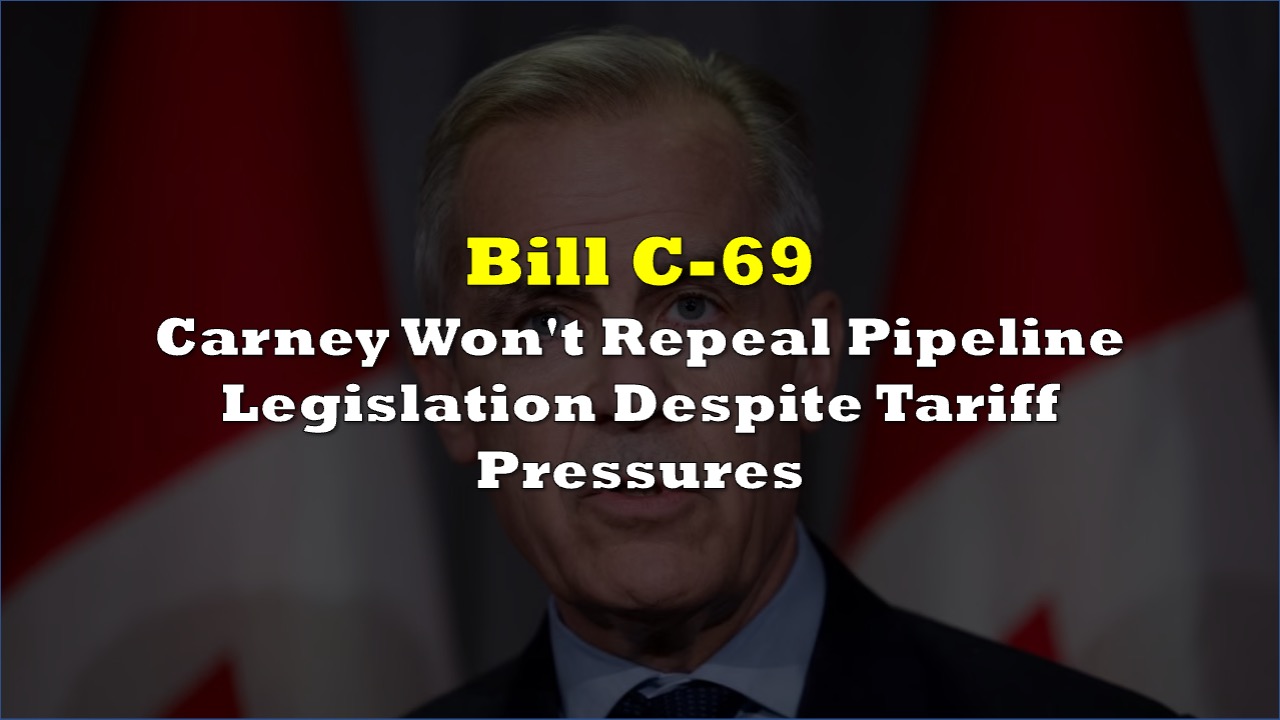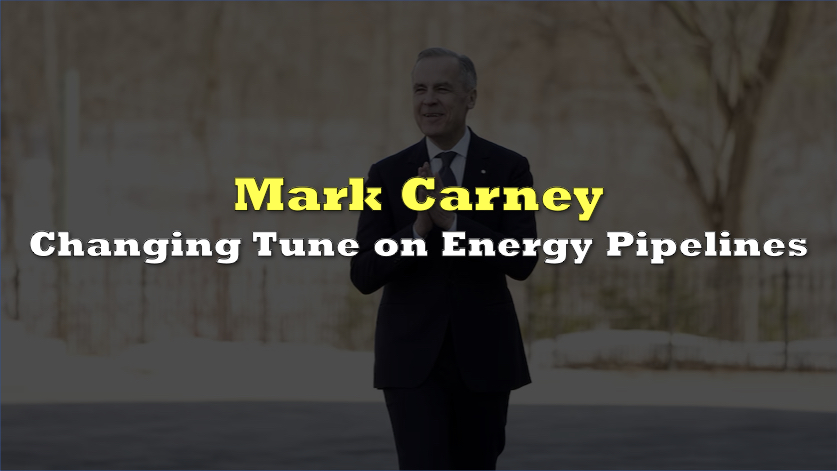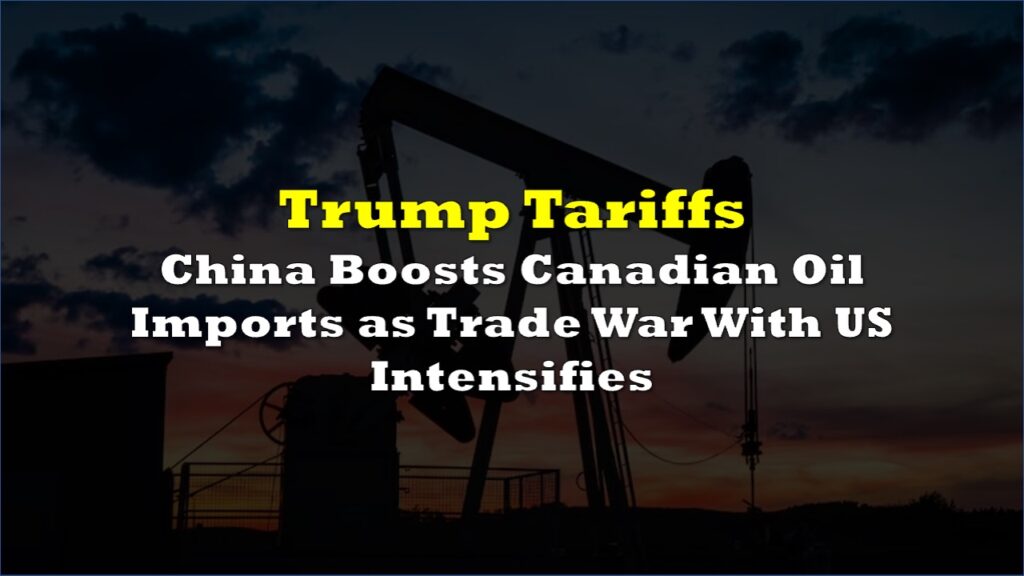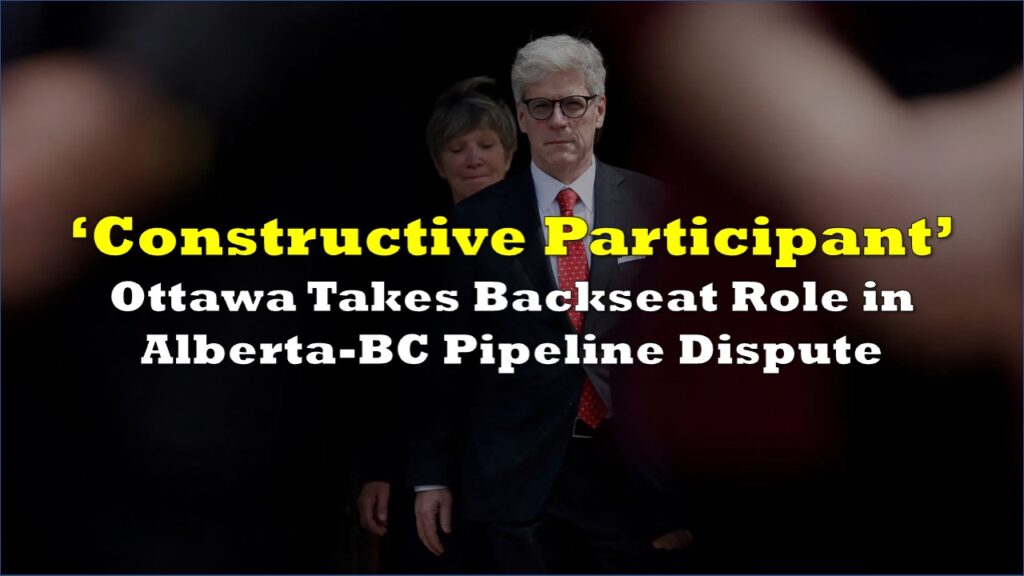Canadian Prime Minister Mark Carney rejected calls to repeal controversial legislation that critics say blocks new pipeline development, even as his government positions itself to counter US tariff threats by developing domestic resources.
“We do not plan to repeal Bill C-69,” Carney said Tuesday at a press conference in Winnipeg, referring to legislation that requires resource projects be assessed for environmental, health, social and economic impacts.
BREAKING NEWS
— Laila Goodridge (@LailaGoodridge) April 1, 2025
Mark Carney confirms he will NOT build new pipelines if elected.
Carney finally gave a clear direct answer on pipelines in Canada. No.
A fourth Liberal term means more reliance on the Americans. pic.twitter.com/JcEZ5CdAgD
The prime minister’s statement contradicts earlier campaign rhetoric where he advocated for pipelines running from east to west, including through Quebec.
So Carneys going to build pipelines with the no pipeline Bill C-69 still in place? Ya. Ok.
— Kevin Pacitti 🇨🇦🇮🇹🇬🇧 (@kpac_15) April 1, 2025
And I have a bridge in Brooklyn for sale. 🙄 https://t.co/ygrv53eH49
Instead, Carney offered a modified approach to energy infrastructure. “What we have said, formally at a First Ministers meeting, is that we will move for projects of national interest, to remove duplication in terms of environmental assessments and other approvals, and we will follow the principle of ‘one project, one approval,'” he said.
The stance comes as Canada faces increasing pressure from planned US tariffs under President Donald Trump, with Carney repeatedly framing his economic agenda as helping Canadians “weather the storm” of potential trade disruptions.
BREAKING: Mark Carney says, "we do not plan to repeal Bill C-69."
— Pierre Poilievre (@PierrePoilievre) April 1, 2025
This Liberal law blocked BILLIONS of dollars of investment in oil & gas projects, pipelines, LNG plants, mines, and so much more – all of which would create powerful paycheques for our people.
A 4th Liberal… pic.twitter.com/0eaJZ9ASrt
Opposition Conservative leader Pierre Poilievre, who’s fallen behind in the polls, quickly criticized Carney’s position, arguing the Liberal legislation has blocked “billions of dollars of investment in oil & gas projects, pipelines, LNG plants, mines, and so much more.”
The issue has gained urgency after 14 Canadian energy companies sent an open letter to party leaders in March calling for streamlined regulation, six-month deadlines for project approvals, and an end to both emissions caps and industrial carbon pricing.
C-69 is *unconstitutional.*
— Jason Kenney 🇨🇦🇺🇦🇮🇱 (@jkenney) April 1, 2025
This is not optional, Mr. Carney.
I challenged the constitutionality of C-69 (which I labelled the ‘No More Pipelines Law’) as a violation of provincial jurisdiction.
The Alberta Court of Appealed agreed on a 4 to 1 judgement, ruling that C-69 was a… https://t.co/I1Y0rv1Bge
Poilievre has pledged to meet all five demands outlined in the energy sector’s letter, presenting a stark contrast to Carney’s approach.
In his Winnipeg appearance, the prime minister highlighted previously announced Liberal promises, including a cut to the consumer carbon tax, middle-class income tax reductions, and housing affordability measures.
Carney maintained his government would pursue resource development through partnerships with provinces and Indigenous communities, saying the federal government would accept provincial environmental assessments for clean energy and conventional energy projects.
Preferred Prime Minister Polling:
— Polling Canada (@CanadianPolling) April 2, 2025
Carney: 47%
Poilievre: 35%
Singh: 12%
Blanchet: 3%
Other: 4%
MQO / March 29, 2025 / n=1664 / Online
Information for this story was found via the sources and companies mentioned. The author has no securities or affiliations related to the organizations discussed. Not a recommendation to buy or sell. Always do additional research and consult a professional before purchasing a security. The author holds no licenses.









